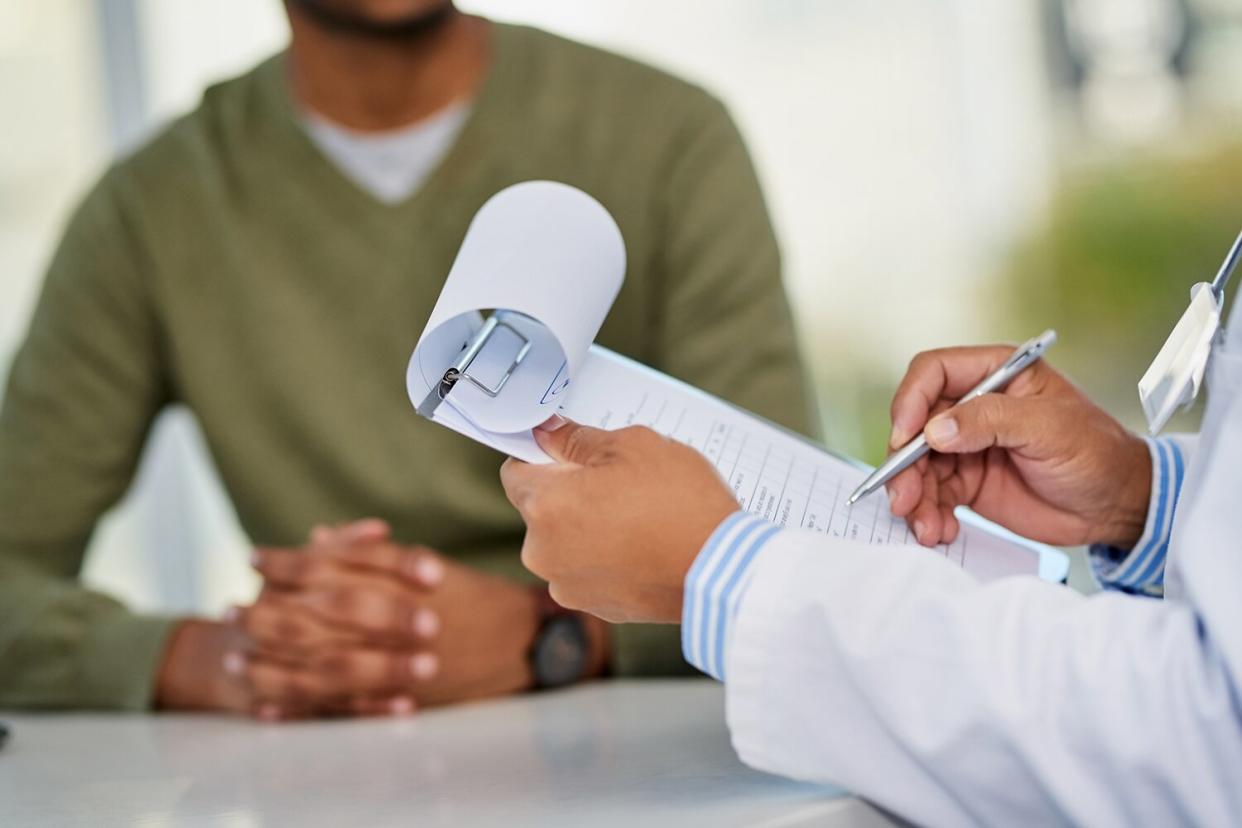Health Panel Recommends Regular Anxiety Screenings for Adults Under 65

Getty
A government-backed panel is recommending that adults under 65 years old be screened for anxiety disorders.
On Tuesday, the influential U.S. Preventive Services Task Force released a draft guidance that recommends regular anxiety screenings as well as depression screenings.
This is the first time a panel has recommended such screenings even in the absence of symptoms, NBC News reported. The adults that should be screened include those pregnant and postpartum.
"When you go to your primary care provider, you get screened for many, many preventive conditions — blood pressure, heart rate, all kinds of things," task force member and clinical psychologist Lori Pbert told BBC. "Mental health conditions are just important as other physical conditions, and we really need to be treating mental health conditions with the same urgency that we do other conditions."
RELATED: COVID-19 May Be Nearing the End of Its Pandemic Phase, World Health Organization Says
The panel, which is based on a review that began before the COVID-19 pandemic, comes at an extremely important time.
"COVID has taken a tremendous toll on the mental health of Americans," Pbert told the Washington Post.
She continued, "This is a topic prioritized for its public health importance, but clearly there's an increased focus on mental health in this country over the past few years."
Anxiety disorders are among the most common mental health complaints from adults in the country and effect approximately 40% of U.S. women and more than 1 in 4 men, Pbert detailed to NBC News. She also noted 1 in 10 pregnant and postpartum women experience anxiety.
According to the expert, anxiety disorders can present in a variety of ways including panic attacks, phobias and feelings of uneasiness.
As for how the screenings would work, brief questionnaires and other already-used screening tools could be used. "The most important thing to recognize is that a screening test alone is not sufficient to diagnose anxiety," Pbert told NBC News, adding that the next step would be to seek a more thorough evaluation from a mental health professional.
RELATED: STDs in the U.S. Are 'Out of Control' After Syphilis Cases Spiked 26% Last Year
For Pbert, the risk of inaccurate screening outweighs the benefits of those that could be positively impacted by them.
The recommendation also acknowledged a potential link to suicide, BBC reported. The panel concluded however that there was "not enough evidence on whether screening people without signs or symptoms will ultimately help prevent suicide".
"What they're recommending now is a great thing because it'll let doctors open up the conversation and hopefully from there, they'll be able to diagnose more and treat more," Dr. John Torres said to the TODAY Show.
Torres continued, "Anytime you have a stressful environment, be it the pandemic, be any kind of disasters or time periods, stress levels go up and anxiety levels go up."
"It can affect anyone, anywhere, anytime," he stated on the show.
Never miss a story — sign up for PEOPLE's free daily newsletter to stay up to date on the best of what PEOPLE has to offer, from juicy celebrity news to compelling human interest stories.
Also in the recommendation, the panel acknowledged that "racism and structural policies" disproportionately affect people of color that hinder their ability to seek treatment, Washington Post reported. The panel also noted that Black patients are less likely to receive mental health services compared to other groups, and that misdiagnosis of mental health conditions occurs more often in Black and Hispanic patients.
"Our hope is that by raising awareness of these issues and having recommendations for clinicians, that we'll be able to help all adults in the United States, including those who experience disparities," Pbert told CNN.
In April, the task force made similar recommendations to begin anxiety screening in children and teens, ages 8 to 18.
Tuesday's proposal is still in draft mode and is open for public comment until Oct. 17.
If you or someone you know is considering suicide, please contact the 988 Suicide and Crisis Lifeline by dialing 988, text "STRENGTH" to the Crisis Text Line at 741741 or go to 988lifeline.org.

